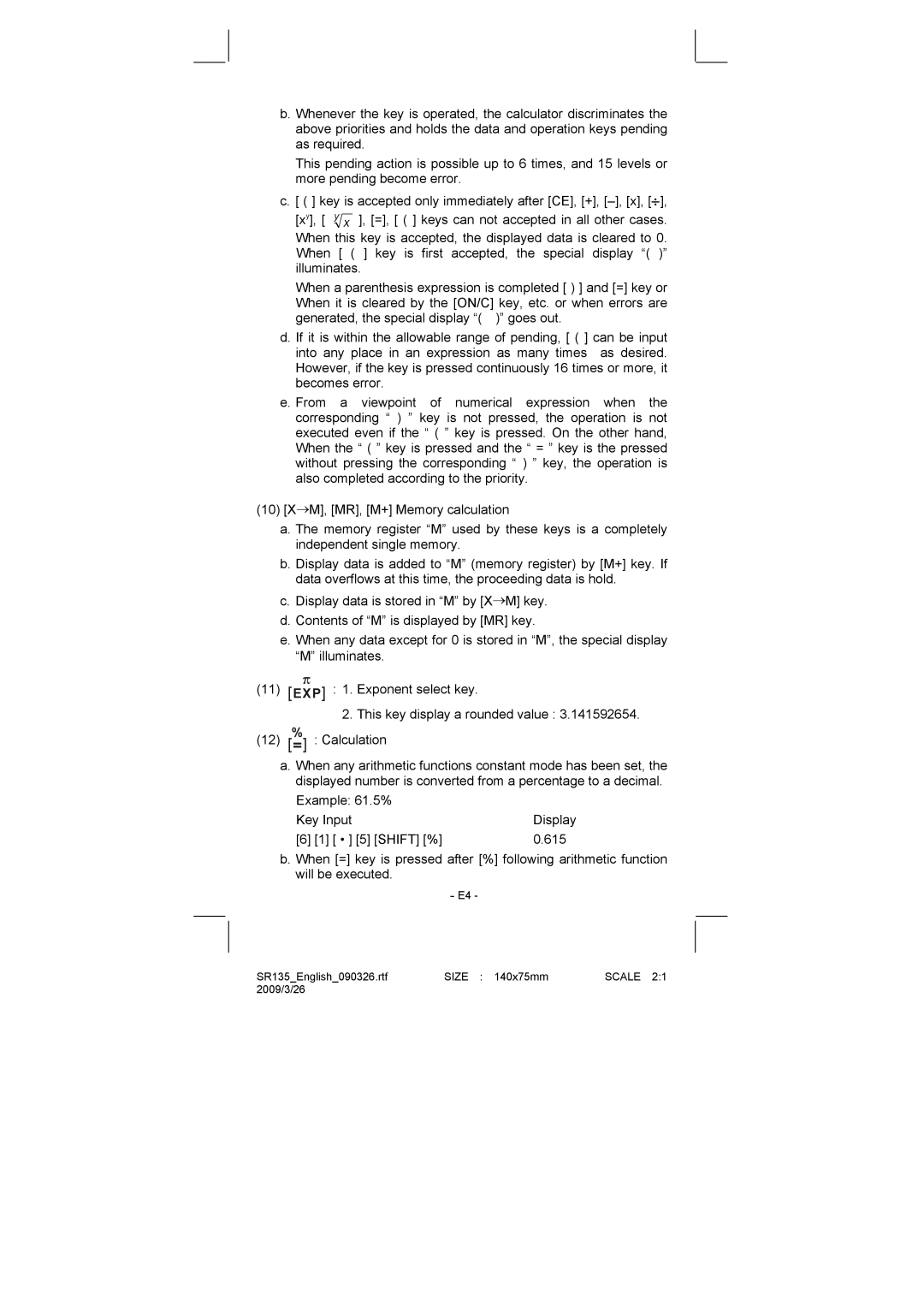
b. Whenever the key is operated, the calculator discriminates the above priorities and holds the data and operation keys pending as required.
This pending action is possible up to 6 times, and 15 levels or more pending become error.
c.[ ( ] key is accepted only immediately after [CE], [+],
When a parenthesis expression is completed [ ) ] and [=] key or When it is cleared by the [ON/C] key, etc. or when errors are generated, the special display “( )” goes out.
d. If it is within the allowable range of pending, [ ( ] can be input into any place in an expression as many times as desired. However, if the key is pressed continuously 16 times or more, it becomes error.
e. From a viewpoint of numerical expression when the corresponding “ ) ” key is not pressed, the operation is not executed even if the “ ( ” key is pressed. On the other hand, When the “ ( ” key is pressed and the “ = ” key is the pressed without pressing the corresponding “ ) ” key, the operation is also completed according to the priority.
(10)[X→M], [MR], [M+] Memory calculation
a.The memory register “M” used by these keys is a completely independent single memory.
b.Display data is added to “M” (memory register) by [M+] key. If data overflows at this time, the proceeding data is hold.
c.Display data is stored in “M” by [X→M] key.
d.Contents of “M” is displayed by [MR] key.
e.When any data except for 0 is stored in “M”, the special display “M” illuminates.
(11)[EXP] : 1. Exponent select key.
2.This key display a rounded value : 3.141592654.
(12)[%=] : Calculation
a.When any arithmetic functions constant mode has been set, the displayed number is converted from a percentage to a decimal. Example: 61.5%
Key Input | Display |
[6] [1] [ • ] [5] [SHIFT] [%] | 0.615 |
b. When [=] key is pressed after [%] following arithmetic function will be executed.
- E4 -
SR135_English_090326.rtf | SIZE : 140x75mm | SCALE 2:1 |
2009/3/26 |
|
|
